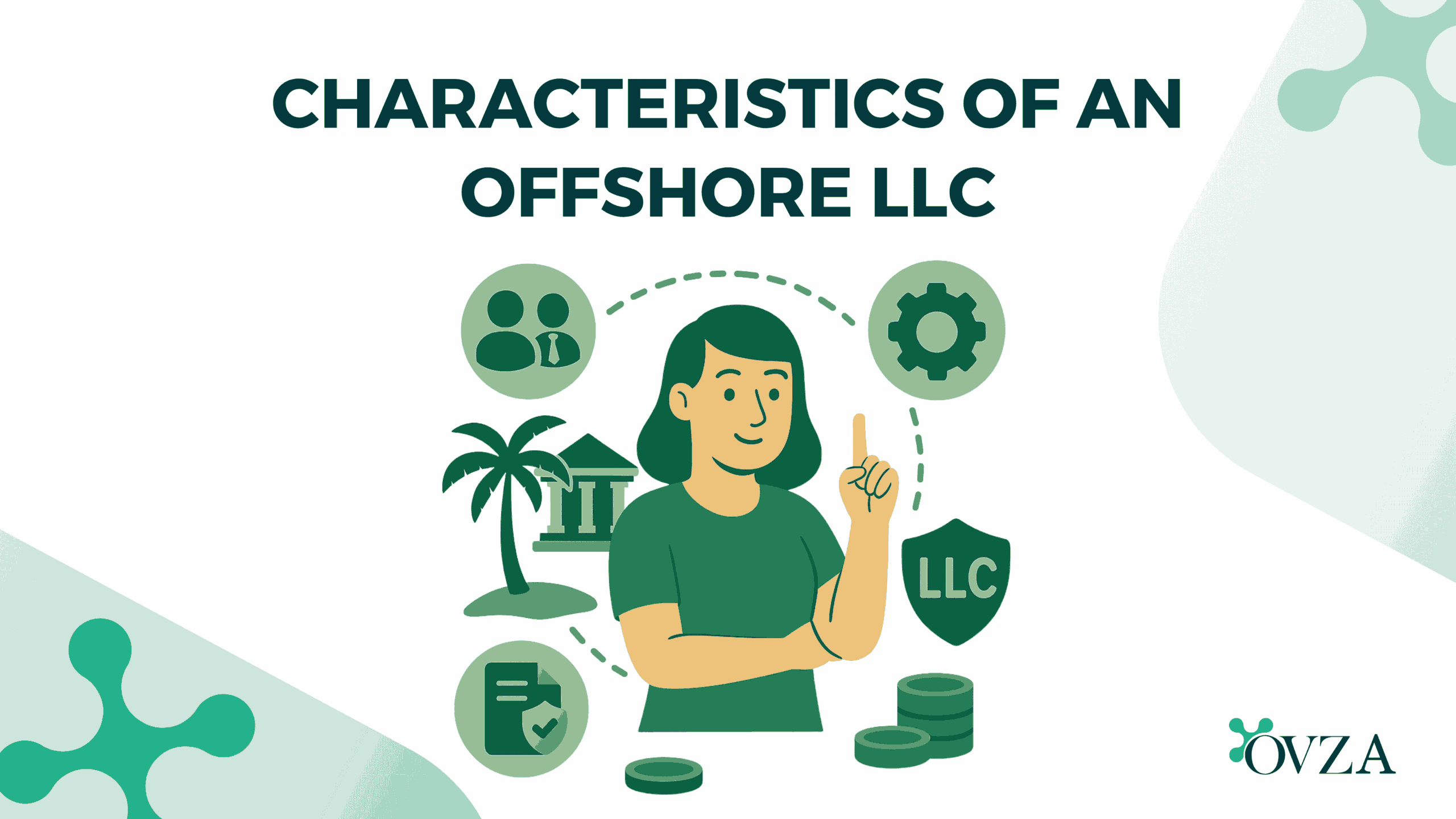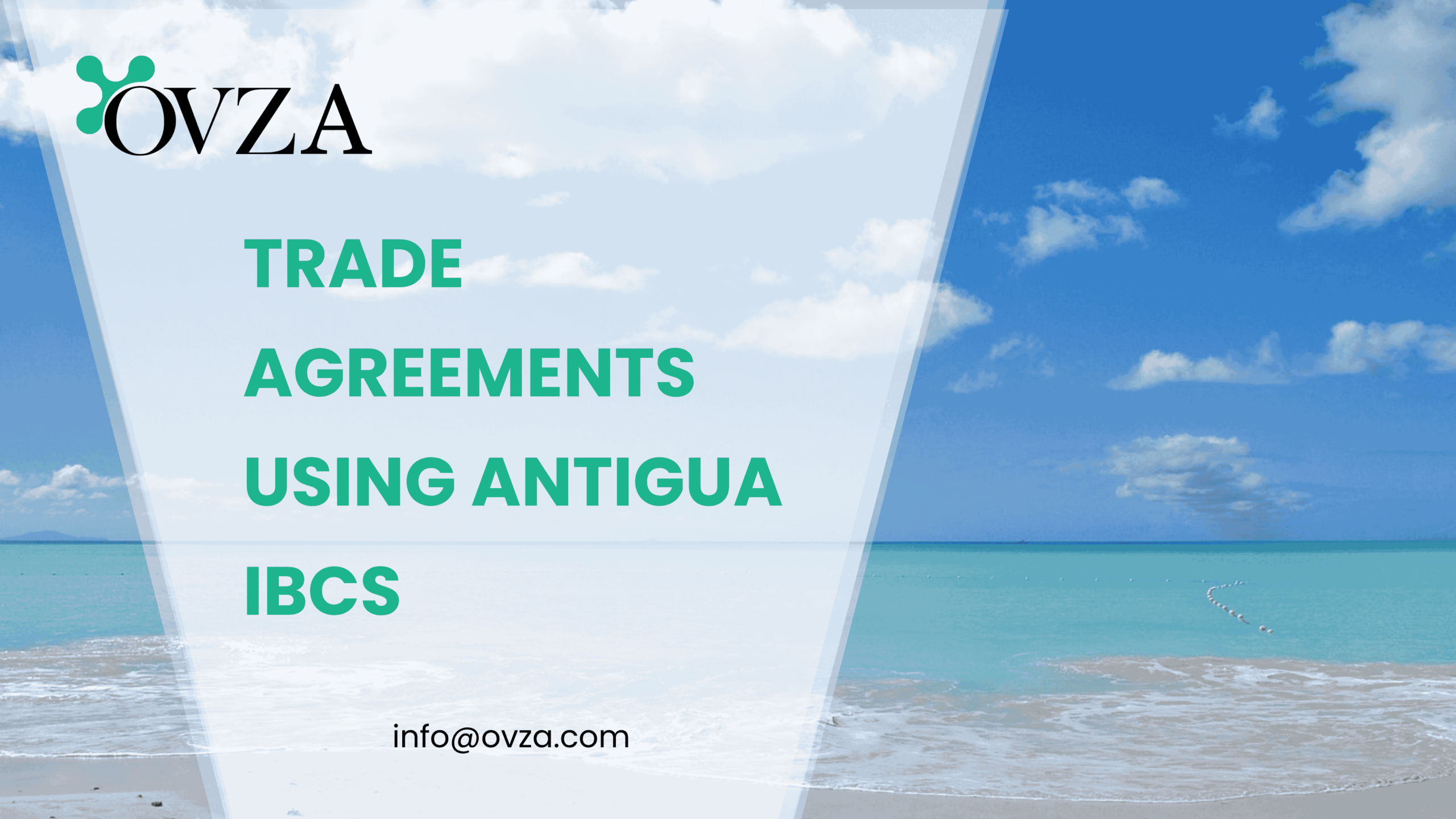The offshore LLC is one of the most versatile and widely utilized international legal vehicles in modern private structuring. Designed for use across borders but grounded in the domestic legislation of its jurisdiction of registration, the offshore LLC combines the pass-through treatment of a partnership with the limited liability of a corporation.
Its popularity stems from a combination of legal protections, ease of management, and neutrality in taxation—particularly when formed in jurisdictions that do not impose income tax on foreign-sourced profits. Unlike traditional companies, an offshore LLC offers a unique hybrid of contractual governance, member privacy, and functional separation from the owner.
To fully understand the characteristics of an offshore LLC, one must examine how it is constructed, how it operates, and the legal principles that define its relationship to owners, creditors, and tax authorities in both the host and user jurisdictions.
Separate Legal Entity and Limited Liability
At the heart of any offshore LLC is its status as a separate legal person. Upon registration, the offshore LLC acquires the right to sue, be sued, hold assets, incur debts, and enter contracts independently of its members. This separation is not merely procedural—it is fundamental to the risk insulation that draws investors, entrepreneurs, and international operators to the structure.
The key legal implication is limited liability. Members are not personally liable for the debts or liabilities of the offshore LLC beyond their contributed capital or agreed obligations. This is true even in cases where the LLC becomes insolvent or subject to a judgment—so long as corporate formalities are maintained and no fraud or misrepresentation exists.
This principle is preserved in most offshore statutes. For instance:
- The Nevis Limited Liability Company Ordinance (amended 2017) expressly states that creditors cannot enforce judgments against the personal assets of LLC members.
- Under the St. Vincent Limited Liability Companies Act, a member’s liability is similarly limited, and no personal exposure exists for the company’s obligations.
This legal distinction between the company and its members is what enables the offshore LLC to act as a strong vehicle for asset protection, especially when established in a jurisdiction that limits the recognition or enforcement of foreign judgments.
Contractual Governance and Internal Autonomy
A defining characteristic of an offshore LLC is the flexibility it offers through contractual governance. Unlike traditional corporate entities that are governed by a fixed statutory framework and shareholder resolutions, the offshore LLC is typically structured around a private operating agreement. This agreement governs the internal relationship between members, as well as the procedures for management, profit distribution, voting rights, and the admission or withdrawal of members.
The operating agreement is often not filed publicly and, in many jurisdictions, there is no requirement to disclose its contents to any governmental authority. As a result, the internal workings of the offshore LLC remain entirely confidential and customizable. Members may agree to any lawful arrangement regarding management structure, including centralized control by a managing member or delegation of authority to an external manager.
In contrast to corporations, where profit allocation is typically tied to shareholding, an offshore LLC allows members to define profit distributions independently of capital contributions. Voting rights, decision-making thresholds, and fiduciary duties can all be contractually modified, provided they do not violate the mandatory provisions of the governing law.
This contractual autonomy means that the offshore LLC can be tailored to function as a silent investment vehicle, an active operating entity, or a strategic joint venture. Moreover, there are no mandatory board formalities or annual meetings unless specifically imposed by the parties themselves. As such, the offshore LLC offers a high level of internal freedom while maintaining a legally recognized limited liability structure under the host jurisdiction’s laws.
This model is reinforced by legislation in key jurisdictions. In Nevis, for example, the law does not require the filing of an operating agreement or disclosure of member identities. The Seychelles LLC framework operates similarly, emphasizing minimal public reporting and leaving the internal affairs of the LLC to private arrangement. The result is a structure that is both legally secure and operationally discreet, making the offshore LLC an appealing option for private business and wealth structuring.
Tax Neutrality and International Use
A critical advantage of the offshore LLC is its treatment as a tax-transparent entity in most common law jurisdictions. From a fiscal standpoint, the offshore LLC is typically not taxed by its jurisdiction of incorporation, provided that no business is conducted within that territory. Instead, the income is treated as accruing directly to the members, who are then responsible for any tax obligations in their own jurisdictions of residence.
For example, in St. Vincent and the Grenadines, Seychelles, Nevis, and Anguilla, an offshore LLC that earns income exclusively outside the territory is exempt from local corporate tax, capital gains tax, and withholding taxes. These jurisdictions often codify such exemptions directly into their enabling legislation or provide written exemptions through statutory instruments.
At the same time, the offshore LLC is often classified as a pass-through entity or disregarded entity in jurisdictions such as the United States, the United Kingdom, or Canada, depending on elections made by the members and applicable domestic law. This dual nature—where the offshore LLC is tax-transparent both at source and at the member level—permits tax-neutral structuring across borders, subject to anti-deferral and controlled foreign company (CFC) rules in the member’s home country.
The offshore LLC structure is particularly favored for international holding companies, intermediary licensing entities, royalty collection, and service provision arrangements where taxation at the local level would create economic inefficiencies. However, care must be taken to ensure compliance with international transparency obligations such as the Common Reporting Standard (CRS), FATCA, and beneficial ownership disclosures, where applicable. Even in tax-neutral jurisdictions, substance requirements and local filing obligations may arise if the offshore LLC is considered to have a local presence or employees.
Asset Protection and Creditor Resistance
Another prominent characteristic of the offshore LLC is its utility in asset protection. When structured correctly in a jurisdiction with strong debtor protection laws, the offshore LLC can serve as a lawful tool to shield personal and corporate assets from external liabilities, future claims, and politically unstable environments.
Certain jurisdictions, such as Nevis and the Cook Islands, have enacted specific legislation to limit the ability of foreign creditors to access assets held in an offshore LLC. The legal mechanisms vary, but often include long statutes of limitations, high evidentiary thresholds to prove fraudulent transfer, and exclusive jurisdiction provisions that restrict recognition of foreign judgments. In many cases, creditors are limited to a charging order remedy, which entitles them only to distributions (if any) made from the LLC, without granting control over the assets themselves.
This legal framework makes the offshore LLC attractive for professionals, entrepreneurs, and high-net-worth individuals seeking to hold investments, intellectual property, or liquid capital outside of high-risk jurisdictions. It is also commonly used in estate planning, often in conjunction with offshore trusts, to facilitate succession while retaining control during the founder’s lifetime.
Nevertheless, asset protection through an offshore LLC must be implemented carefully and well in advance of any known or anticipated claim. Courts in most jurisdictions—whether offshore or onshore—will not uphold transfers that are deemed to be fraudulent conveyances. Legal advice should always be obtained in both the formation jurisdiction and the client’s country of residence to ensure lawful structuring.
Comparison Between Onshore LLC and Offshore LLC
While the offshore LLC shares a similar foundational concept with its onshore counterpart—namely limited liability and pass-through treatment—the legal and practical differences between the two are significant. These differences are not merely cosmetic but rooted in jurisdictional intent, regulatory burdens, and international applicability.
An onshore LLC is typically designed for local trade and governed by a regulatory framework that includes domestic taxation, public filing obligations, and broad creditor access. In contrast, the offshore LLC is structured to operate internationally, often without local business activity, and benefits from favorable legislation that limits regulatory interference and preserves member confidentiality.
The following comparison outlines the core distinctions between an onshore LLC and an offshore LLC across several dimensions, including tax treatment, disclosure requirements, and use case alignment:
| Feature | Onshore LLC | Offshore LLC |
| Jurisdiction | Formed in the country of residence or business operations | Formed in a foreign jurisdiction, typically tax-neutral |
| Taxation | Subject to local income tax, corporate tax, and reporting | Often tax-exempt on foreign-sourced income |
| Regulatory Compliance | Full compliance with domestic laws and frequent audits | Minimal regulatory burden if no local operations |
| Public Disclosure | Members and financials may be disclosed in public registers | Member identities usually remain confidential |
| Legal Structure | Governed by standard local LLC statutes | Governed by offshore statutes emphasizing privacy and flexibility |
| Asset Protection | Limited creditor protection; domestic judgments enforceable | Strong protection in jurisdictions with anti-foreign judgment laws |
| Reputation / Perception | Seen as mainstream and transparent | May face reputational concerns or enhanced due diligence |
| Use Case | Local operations, U.S. real estate, small business | Holding structures, investment vehicles, international planning |
| Substance Requirements | May be minimal or extensive depending on jurisdiction | Often minimal unless conducting business within jurisdiction |
| Management Structure | Defined by statute and operating agreement | Fully defined by private operating agreement |
| Access to Banking | Easier in local jurisdiction | Requires specialized offshore-friendly banks or EMIs |
These differences make the offshore LLC an appealing option for investors, holding structures, or international planners who require legal insulation, tax neutrality, and operational privacy. However, suitability must always be evaluated based on the tax residence and compliance obligations of the beneficial owners involved.
Conclusion
The offshore LLC remains a legally recognized and widely utilized structure for international asset holding, private business operations, and cross-border investment. Its appeal lies in the combination of limited liability, tax neutrality, confidentiality, and internal contractual freedom. These characteristics distinguish it sharply from its onshore counterpart, which is often constrained by public reporting, local taxation, and domestic legal exposure.
When structured appropriately and in compliance with international disclosure regimes, the offshore LLC can serve as an effective vehicle for wealth preservation, corporate flexibility, and legal separation of ownership from risk. The strength of its legal protections, however, depends heavily on the jurisdiction of formation, the accuracy of its implementation, and the legal environment of the beneficial owner’s home country.
As international regulatory scrutiny continues to evolve, the offshore LLC must be used with care, ensuring transparency where required and legitimate structuring at all stages. When used within the boundaries of applicable law, it remains one of the most flexible and secure tools in global private structuring.
Disclaimer: The information provided on this website is intended for general reference and educational purposes only. While OVZA makes every effort to ensure accuracy and timeliness, the content should not be considered legal, financial, or tax advice.










